Celestron Nature DX ED 12x50 binoculars: a great all-rounder with next-level optics
The Celestron Nature DX ED 12x50 binoculars take travel, dawn safari drives and late-night stargazing in their stride with top-class glass in a compact design
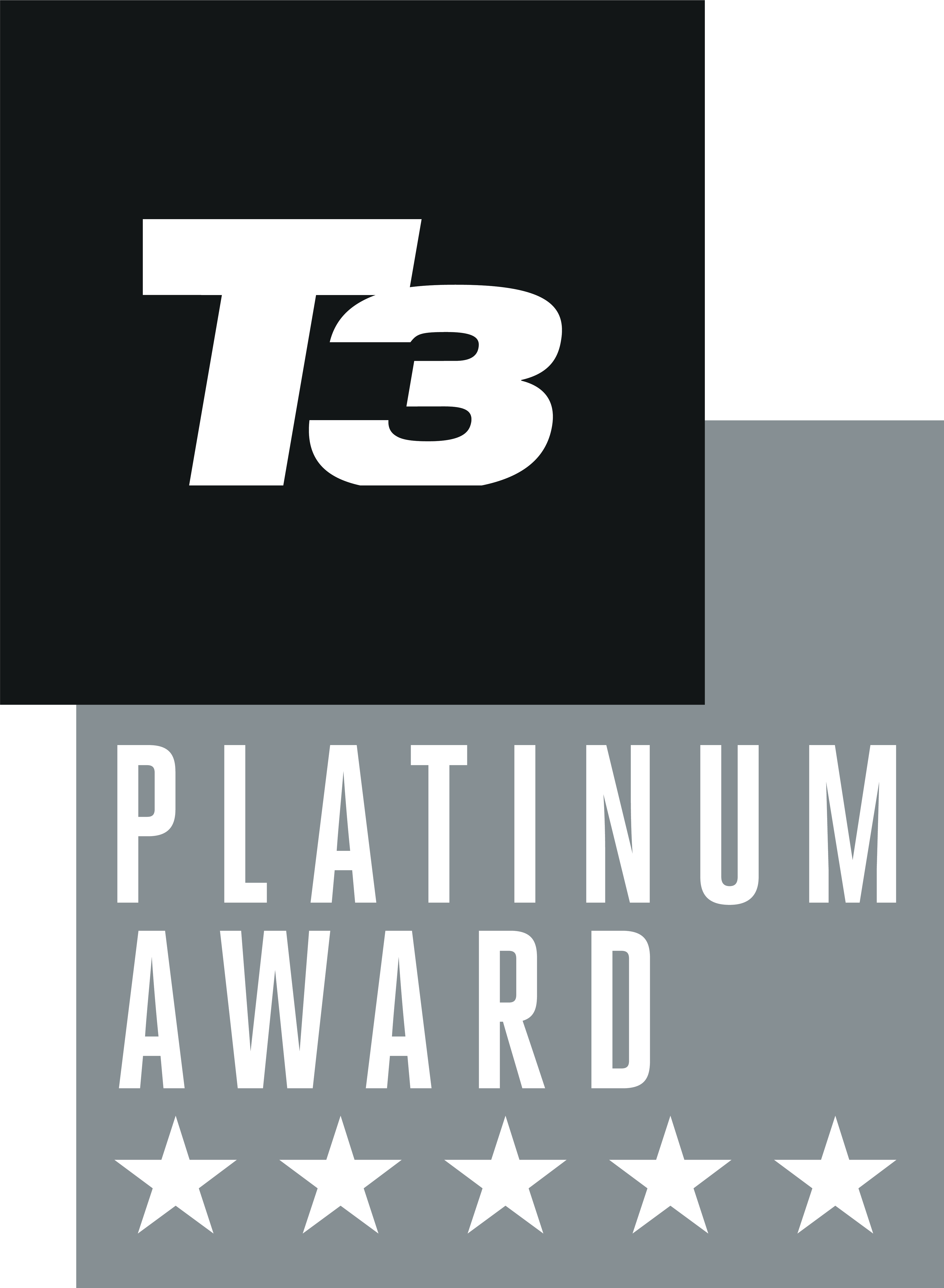
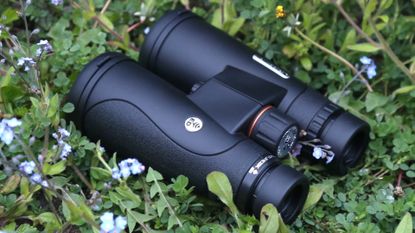
The Celestron Nature DX ED 12x50 binoculars have high-end optics and a bullet-proof build quality that make them great for travel and all-round use, with high magnification and light-gathering making them ideal for wildlife and stargazing.
-
+
Extra-Low Dispersion (ED) glass
-
+
Compact size
-
+
Excellent build quality
-
-
Expensive
-
-
Not much eye relief
-
-
Average quality eyecups
Why you can trust T3

In this Celestron Nature DX ED 12x50 review we're going to see why it's worth spending as much as you can afford on a pair of binoculars. With 12x magnification and 50mm objective lenses, at first glance the Celestron Nature DX ED 12x50 is exactly the right size of binoculars to consider for both safari and stargazing.
However, those objective lenses hold a secret feature in the form of extra low dispersion (ED) glass lenses, Celestron's own proprietary construction that's designed to prevent any image imperfections such as colour fringing. That's something that can be all too obvious when pointing a pair of binoculars at very bright stars and the Moon.
As well as being ideal for stargazing, you should also consider the Celestron Nature DX ED 12x50 as ripe for everything from wildlife observations (they can focus on animals just 2m/6.5ft distant) to sports events. Not only because of their innate specifications, but because they have both core quality and a compact design that makes them easily portable.
They're a step-up in both price and performance compared to the Celestron Nature 8x42, but how do they compare to the rest of the best binoculars, or the best birdwatching binoculars specifically, around today? Here's my Celestron Nature DX ED 12x50 binoculars review.
Celestron Nature DX ED 12x50 binoculars review: price and release date
The Celestron Nature DX ED 12x50 cost around UK £249 / US$219 / AU$353 and originally went on sale in late 2019. They come with a limited lifetime warranty.
Celestron Nature DX ED 12x50 binoculars review: design and features
Physically speaking, the Celestron Nature DX ED 12x50 are an attempt to create a pair of binoculars with excellent quality large (and therefore heavy) 50mm objective lenses in as lightweight a package as possible.
Celestron Nature DX ED 12x50 binocular specs
Magnification: 12x
Objective diameter: 50mm
Field of view at 1000m: 129 metres
Closest focusing distance: 2 metres / 6.5 feet
Eye relief: 14.3mm / 0.56"
Weight: 806g / 28.4oz
Dimensions: 163 x 135 x 61mm / 6.4 x 5.3 x 2.4"
Their roof prism design is how the latter is achieved, with the simple tubes-plus-hinge design making them exceptionally narrow when folded up. The Celestron Nature DX ED 12x50's tubes are also nitrogen-filled to prevent any kind of internal fogging.
The roof prism optical design has here been souped-up to include BAK-4 glass and phase coatings to increase light transmission, which is crucial for stargazing and for any kinds of low-light use (most often birdwatching or safari trips at dawn or dusk).
However, the major upgrade that you're paying extra for here is the extra low dispersion ‘ED' glass, which gets rid of chromatic aberration/colour fringing. Mostly obvious as a purple line around bright objects, it's the result of poorly focused wavelengths of light. So ED means more focused beams of coloured light and, therefore, cleaner and sharper images.
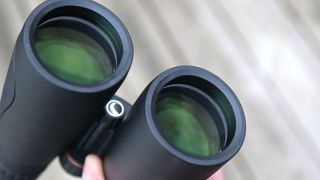
Celestron Nature DX ED 12x50 binoculars review: build and handling
At 806g/28.4 oz the Celestron Nature DX ED 12x50 aren't exactly lightweight. In fact, they do seem a little heavy when you first use them. However, their compact design makes them reasonably easy to hold steady. That's partly helped by the fact that the rubber-covered polycarbonate tubes have some textured areas resting your fingers, there are no indents for thumbs.
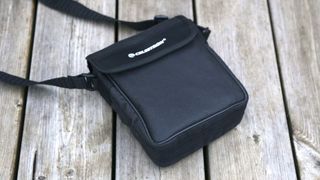
In the box is a small padded pouch, complete with shoulder strap, but it also has a pocket at the front for storing the lens cloth, or perhaps a notebook. On the rear of the pouch is a useful belt loop. The package also includes a good quality shoulder neck strap, to which you can attach the dual eyecup cover. However, what the Celestron Nature DX ED 12x50 does noticeably lack is high-end eyecups. Unlike the rest of the construction, the eyecups feel like they've been somewhat ignored. Not only do they have a slightly plasticky feel, but they only offer only 14.3mm/0.56" of eye relief, so they're not going to be ideal for those who wear spectacles.
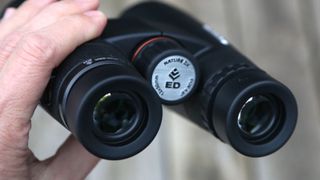
Something we do really like about all binoculars in Celestron's Nature DX range are the objective lens caps. They are attached to the end of the tubes by rubber rings, which allow the lens caps to hang down beneath the lenses while you use them. That makes them virtually impossible to lose, though if you're going to be using the binoculars for a long period and you don't want them flapping around them you can quite easily remove them completely.
Celestron Nature DX ED 12x50 binoculars review: performance
Their versatile size might make them seem like a good all-round option for general use, but the high-end optics marks out the Celestron Nature DX ED 12x50 as an excellent pair of mid-market binoculars for the price-conscious connoisseur.
We put these binoculars to the test on a clear night in Spain, where we were able to view a crescent moon without any kind of colour fringing. So the ED glass does really work well. We also managed to see some of the colour of the supergiant star Antares while the Beehive cluster looked exquisitely sharp and contrasty.
More than enough light gets into the Celestron Nature DX ED 12x50 for basic astronomical use, but that's also of great value when observing wildlife during dawn and dusk. Although the 4.8° field of view means close-ups that are that tiny bit better than on binoculars with 10x magnification, it has the ability to focus on things just 2m/6.5ft, which we enjoyed just as much.
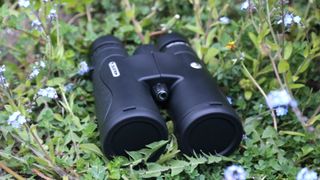
Celestron Nature DX ED 12x50 binoculars review: alternatives to consider
The Celestron Nature DX ED 12x50 are one of four sizes in Celestron's Nature DX line-up of roof prism binoculars that make use of the same high-end ED glass. The other sizes are 8x42, 10x42 and 10x50.
If you can stomach swapping a little less magnification and smaller objective lenses for some highly advanced image stabilisation tech then consider the much pricier Canon 10x42L IS WP binoculars, which like the Celestron Nature DX ED 12x50 have ultra-low dispersion lens elements for edge-to-edge sharpness and unique image stabilisation that cancels-out any wobble in your arms.
For a more affordable entry-level option you're going to have to drop the top-class glass, with the Celestron UpClose G2 10x50 a good option. These low-priced, lightweight and easy-to-use porro prism binoculars give clear and bright views in daylight.
Celestron Nature DX ED 12x50 binoculars review: verdict
If you're after a mid-range pair of binoculars that can cope with rough travel, dawn safari drives and late-night stargazing then the Celestron Nature DX ED 12x50's top-class glass will impress. They're a step-up choice compared to other 12x50 binoculars on the market, but all-round build quality and those Extra-Low Dispersion (ED) glass optics make these roof prism binoculars a standout product.
Sign up to the T3 newsletter for smarter living straight to your inbox
Get all the latest news, reviews, deals and buying guides on gorgeous tech, home and active products from the T3 experts
Jamie is a freelance journalist, copywriter and author with 20 years' experience. He's written journalism for over 50 publications and websites and, when he's not writing, spending most of his time travelling – putting the latest travel tech through its paces.
-
 Skip the lunges – this knee-friendly workout builds lower body strength and muscle
Skip the lunges – this knee-friendly workout builds lower body strength and muscleDon't let your knees get in the way of your lower body workouts
By Bryony Firth-Bernard Published
-
 Spotify gets a free update that makes repeat listening much more simple
Spotify gets a free update that makes repeat listening much more simpleHey DJ, play my favourite song
By Britta O'Boyle Published
-
 Nothing Phone (3) spotted online for the first time
Nothing Phone (3) spotted online for the first timeIt's not expected until 2025, but we now know a little more about Nothing's next flagship
By Chris Hall Published